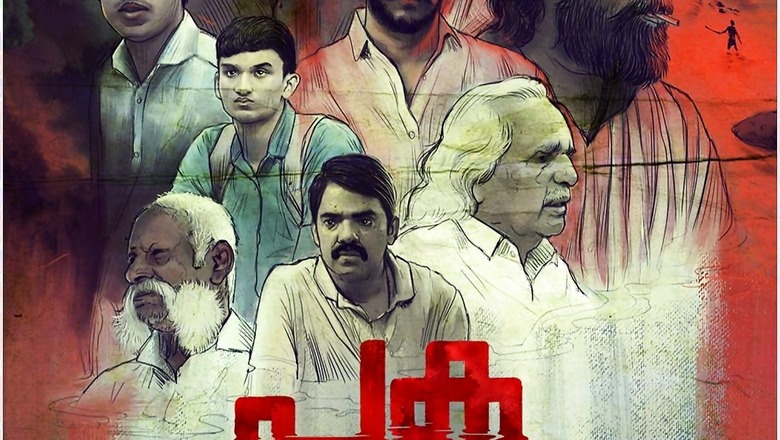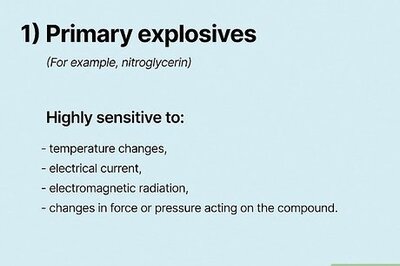
views
Malayalam director Nithin Lukose’s Paka, which just screened at the ongoing inaugural edition of the Red Sea International Film Festival, is his first work, and like dozens of titles running on the lines of the Shakespearean tragedy, Romeo and Juliet, it is a story between two star-crossed lovers in a small village in Kerala’s Wayanad. But where Paka differs is the way Lukose has written the finale, happily without any dramatics that we have come to associate with much of Indian cinema.
Dark and depressing, Lukose’s writing has little cheer. Even the romance between Johnny (Basil Paulose) and Anna (Vinitha Koshi) from two warring families generationally thirsting for each other’s blood, runs like the placid village river, that though hides a bloody story. Bodies are dumped into this, a heinous practice, that the title, Paka or River of Blood, borrows.
In fact, the movie opens with an ace, but ageing diver getting into the water and fishing out a body. The police and the village folk watch this with bored curiosity; this is such a frequent occurrence that they have lost count and interest in the war which the two families have been waging, determined to destroy just about every member. The patriarch of one family is blind, the other in the second family is bed-ridden, lying in the darkened room, stubbornly refusing to let the window be opened and breathing revenge, egging even the youngest member, Paachi (Athul John), to pick the dagger and kill.
Paka is death, destruction and defeat all the way, and the only let-up arrives in the form of a budding romance between Johnny and Anna, who desire and work towards a rapprochement, hoping that their marriage would end this horrific strife and cleanse the river of the poisoned blood. Early on, we see the two getting ready to marry, of course secretly, but the murder of his uncle, Kocheppu (Jose Kizhakkan), comes in the way.
Kocheppu has just come of jail after serving a 15-year sentence for murdering one from the “enemy’ clan, but he is determined to stop this blood and gore, and even apologises to Anna. It was a terrible mistake. Both your father and I got into a fight, and it happened, he explains, nearly convincing her.
But with Johnny’s grandmother and Anna’s grandfather thirsting for avengement, the enmity does not seem to be ending anytime soon. There is a terrifying scene in which the grandmother pushes Paachi, a mere schoolboy, to go out and kill. She tells him that his elder brother, Johnny, is a coward, unwilling to take up arms and save the family honour.
While Lucose’s work is subtle and subdued, it sometimes borders on implausibility. After the initial murders, the police seem to have lost interest, and they remain mere spectators as bodies are regularly dumped into the river. As the two families are pushed into doom, with the men in Anna’s family in no mood for peace, the others like Kocheppu and Johnny are desperate not to let the feud pass onto the next generation. Kocheppu does this with an apology, Johnny with love, while Anna appears caught in a bind. She is confused and angry, afraid that this bloody battle will mar her marriage and happiness.
The performances are passe, except Kizhakkan’s, who infuses charm and a bit of joy to drive away the gloomy clouds over his beloved village. He is a natural, but Paulose and Koshi are too stiff to get the narrative moving. A little more life in them could have livened up an otherwise distressing and bleak story.
(Gautaman Bhaskaran is an author, commentator and movie critic who has been covering many film festivals, like Cannes, Venice and Tokyo for several years)
Read all the Latest Movies News here

















Comments
0 comment